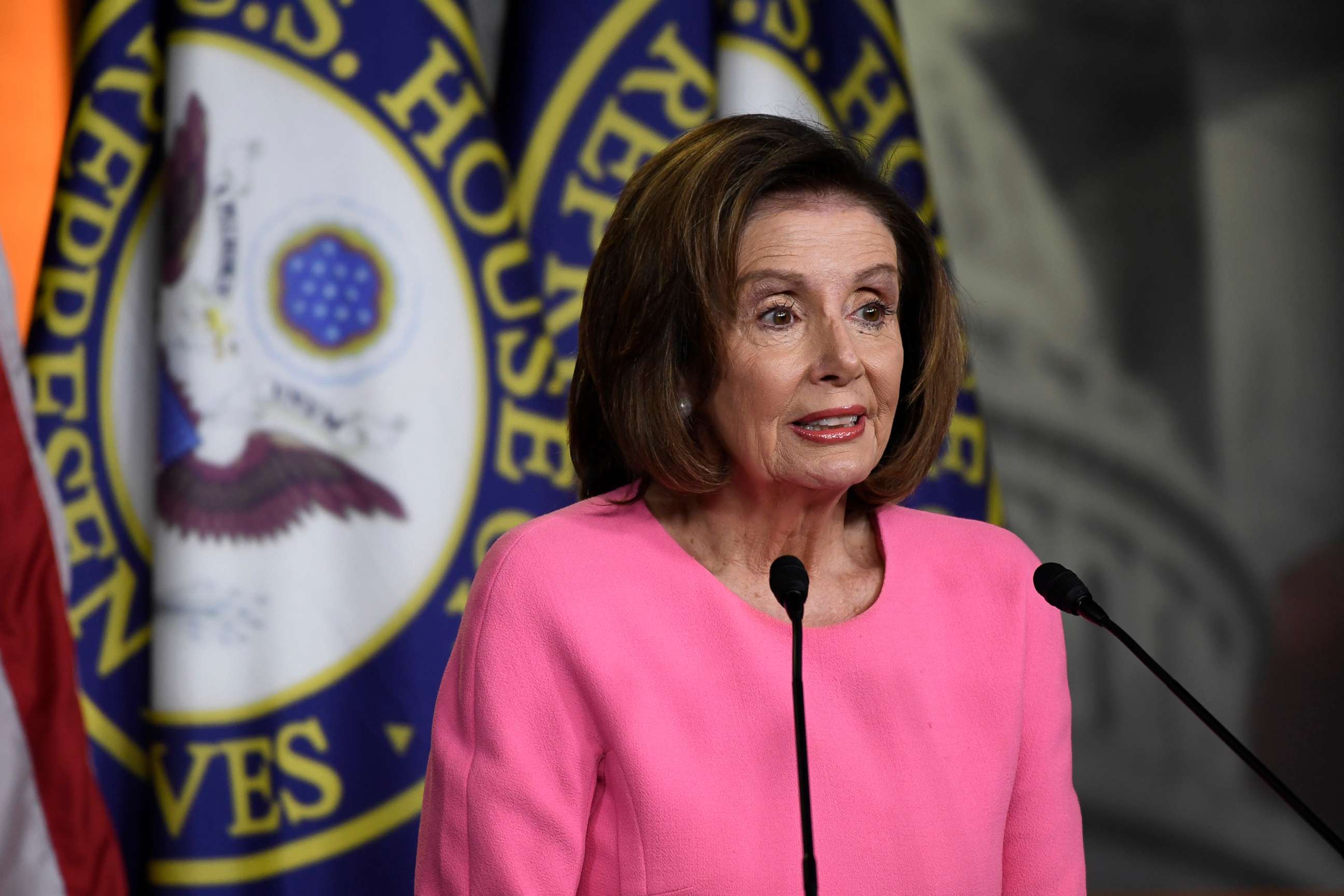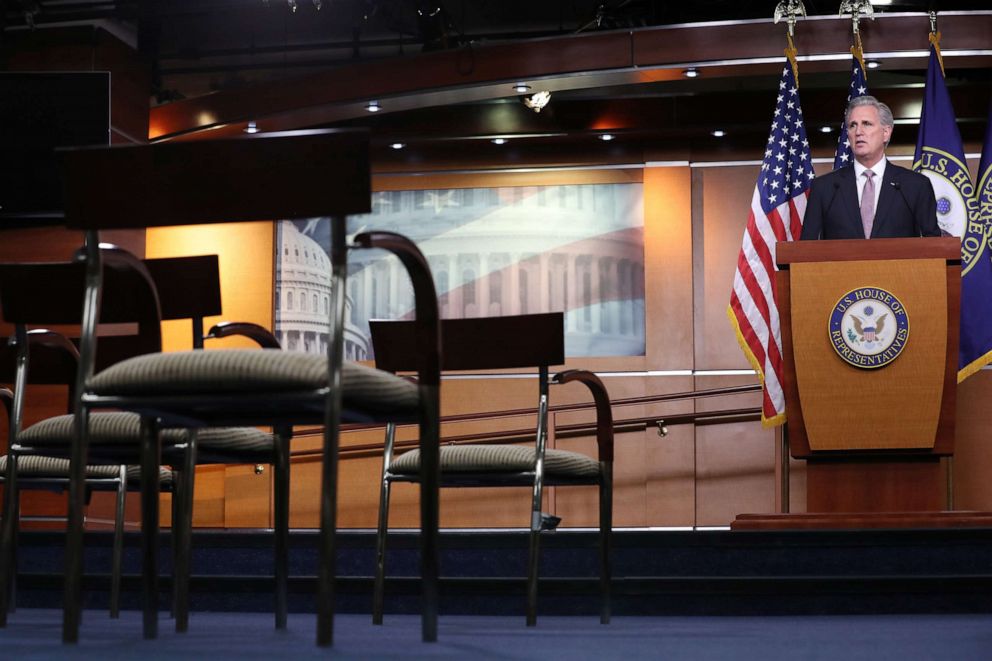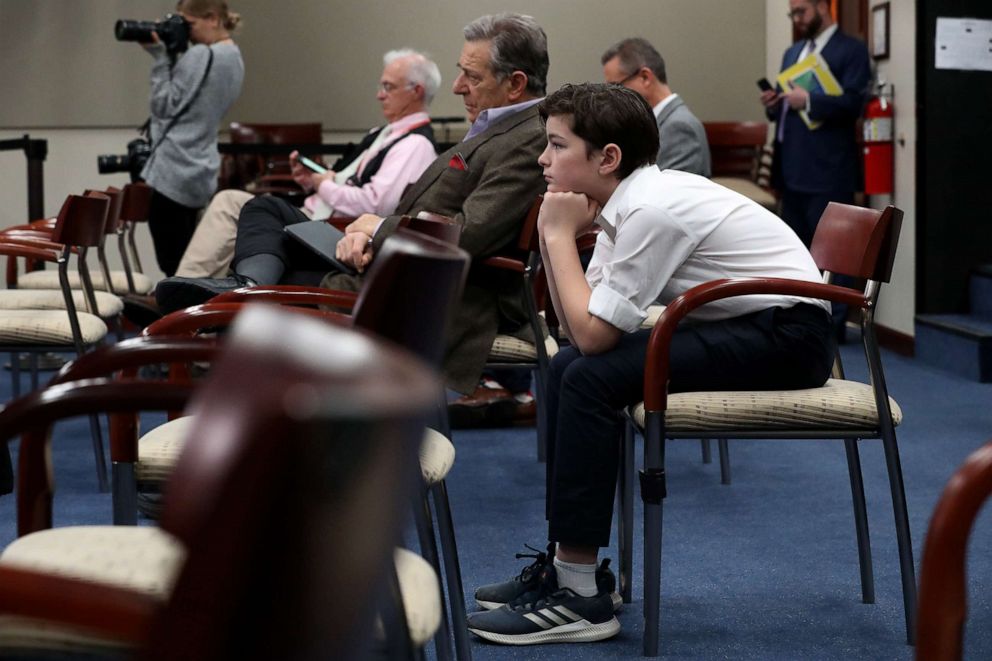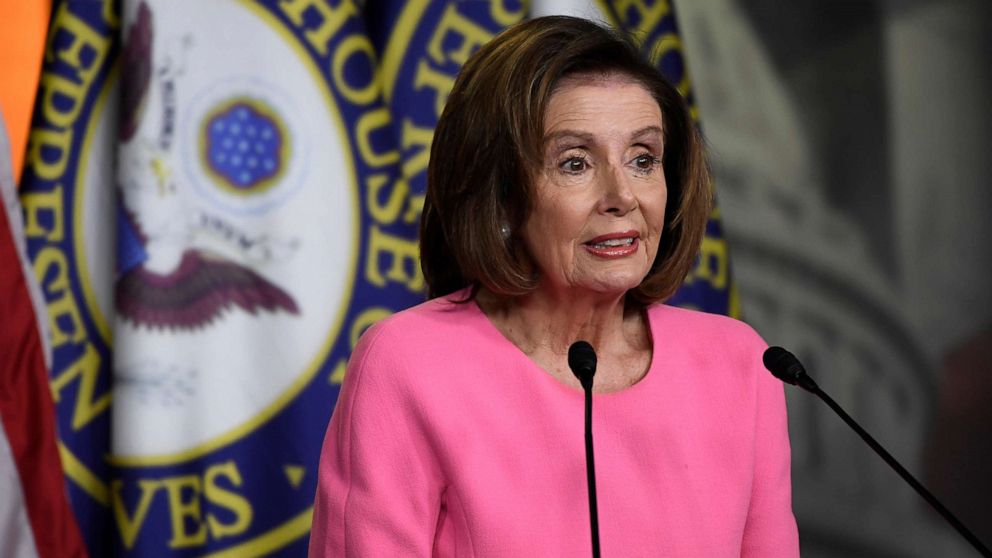Congressional leaders hope to avoid delay or drama in House vote on $2T relief bill

After some legislative “jiujitsu,” Speaker Nancy Pelosi said Thursday she is “very proud” of the $2 trillion coronavirus crisis relief package the House is expected to vote on Friday morning and then send to President Trump, adding she feels "certain we will have a bipartisan vote.”
“Congressional Democrats in the Senate, and in the House, were able to flip this over from corporate trickle-down Republican version, to bubble-up for families first legislation,” Pelosi, D-Calif., said. “We have some other things we want to do, but first we want to take pride in what happens there.”

But before the House has even voted to send the bill to the White House, House Minority Leader Kevin McCarthy accused Pelosi of lying about the negotiations, arguing the bill did not significantly change as Democrats fought for changes and delayed a vote this week.

"A few minutes ago, the speaker stood at this podium and claimed that House Democrats did what she called a jujitsu to change the bill. That is an outright lie," McCarthy, R-Calif., told reporters. "The fundamental portions of this bill has not changed [since] Sunday. Four months for unemployment was already decided on Sunday. The grant to keep employees hired on small business was already decided on Sunday. The only few additions were funding of things that had nothing to do with the coronavirus. Was that worth holding it up, and more people being laid off? More people losing sleep, more people wondering if they can continue? Those are the type of games that have to stop in Washington."
If those differences don't derail plans for passage on Friday, the House will to meet at 9 a.m. to hold a short debate and then approve the massive bill by voice vote, opting against a recorded roll call vote in order to avoid calling all 435 members back from recess to the Capitol.
President Trump speculated there could be "a grandstander" who requests a recorded vote in the House, delaying passage.
"It'll pass," he said. "It'll just take a little longer."
At her news conference, Pelosi, who turned 80 years old Thursday, dismissed concern that a single lawmaker will take advantage of current House rules to attempt to disrupt plans to approve the bill by voice vote by requesting a recorded roll call vote. Pelosi added she would not celebrate her birthday until she could hug her grand-babies.
“We will have a victory tomorrow for America's workers,” Pelosi predicted. “If somebody has a different point of view, they can put it in the record, but we're not worried about that.”

McCarthy also said he expects members to debate and then vote to approve the legislation in a bipartisan fashion. He said if members wish to speak on the floor, they will be sitting and standing far apart from one another, and they'll also have to wipe down the podium when they're done talking.
It remains an open question whether any Republicans or Democrats will disrupt plans for a voice vote, as Kentucky Republican Rep. Thomas Massie signaled he was not pleased the House would conduct business without a majority of its members present for consideration of the gargantuan package.
McCarthy wouldn't say whether any of his Republican members might object to a voice vote. Instead, he pointed at Democrats, specifically Rep. Alexandria Ocasio-Cortez of New York, as a possible culprit.
"I've heard AOC. I've read something where she's thinking that she might do that. I think that is wrong," McCarthy reported. "We are going to have the opportunity to read the bill. I know it came out late last night. We've been keeping our members abreast of where the bill's at having worked on the bill for numerous days. They'll have the ability to read the text as well. We'll have debate, and then we'll have a voice vote. I do not think there's a need for anything else."
It's unclear how many members will turn out in person when the House considers the bill Friday, though Pelosi and McCarthy have risked their own personal health by remaining in town this week awaiting the Senate's passage of the bill.
More than a dozen members of the House of Representatives are in self-quarantine while two members announced they had positive tests for COVID-19. In the Senate, four Republicans missed Wednesday night's vote because they were in self-quarantine, including Sen. Rand Paul, who also tested positive for the virus.
The Offices of the House Sergeant at Arms and Attending Physician issued a memo Thursday announcing unprecedented changes in the Capitol for tomorrow’s vote, including limiting access for reporters.
“Members should use extreme care and deliberation when making the determination to travel to Washington, D.C,” the memo warned. “In all cases, Members and staff must maintain 6-foot social distance spacing as much as practicable when in the offices or the Capitol.”
The Speaker’s Lobby will also be closed to reporters, although the galleries on the balcony level will remain open to reporters. Anyone with a respiratory illness is also discouraged from attending the vote. In the event of a request for a recorded vote, members would vote alphabetically in groups of 30.
“Please note that throughout the vote, we will be monitoring the number of Members in the Capitol and on the Floor to ensure we maintain safe social distancing at all times,” the memo states. “Members who are ill with respiratory symptoms or fever are discouraged from attending.”
Pelosi listed several provisions she hopes will be included in future legislation – including a “better definition” of who qualifies for Family and Medical leave, stronger worker protections, expanded life pensions, an increase in food stamps, and more money for state and local governments.
With the Senate on recess until April 20, after Easter, Pelosi said she believes the House must be ready to potentially act again earlier.
"Everybody has to be on-call for what we need, when we need it, and we don't know what that might be,” she said. “But whatever it is, we'll be ready."
McCarthy downplayed the possibility of a fourth relief package after several Republicans and Democrats said that Congress may need to start working on its next emergency relief package to address the coronavirus crisis.
"You have to let the bill work before I can answer questions about 'is it enough?'" McCarthy said during a news conference at the Capitol. "You're sitting here talking about needing another bill? If these bills are done correctly, let them put them to work to get through this. If something is needed in the future, lets make that decision. But lets not make that decision without allowing these bills to be put into the economy."
Pelosi said she plans to continue working mostly in Washington, and encouraged the next bill to be negotiated on a bipartisan, bicameral basis.
“We really should be operating four corners,” Pelosi said, referring to the top House and Senate leadership. “This is all about the coronavirus. It's not about anything else. It’s about the coronavirus so this is temporary for this period of time.”
As pundits weigh the winners and losers of the far-reaching relief package, she said “it was curious” that the bill treated the District of Columbia “in a discriminatory way” by allocating funds to it in line with American territories rather than states.
“It really makes no sense unless you have some other motivation,” she said. “The District of Columbia has always been treated like a state in terms of distribution of funds.”
“It doesn't face the realities of a public health crisis that we have in our country and goes out of its way to do something so out of the ordinary,” she said. “But it was a decision. It wasn't an accident. It was a decision. So let's make a decision to correct that.”
ABC News' Mariam Khan contributed to this report
What to know about coronavirus:
- How it started and how to protect yourself: coronavirus explained
- What to do if you have symptoms: coronavirus symptoms
- Tracking the spread in the US and Worldwide: coronavirus map




